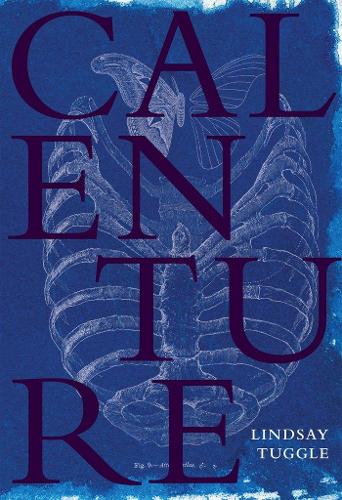
Calenture
(Paperback)
Publishing Details
Calenture
By (Author) Lindsay Tuggle
Introduction by Kate Middleton
Cordite Publishing Inc.
Cordite Publishing Inc.
1st March 2018
Australia
Classifications
Physical Properties
Paperback
86
Width 150mm, Height 221mm, Spine 8mm
159g
Description
These poems are animated by the dead: and the most notable presence is that of the poet's sister: the permanent scar of her loss is the glowing wound at the heart of this collection. Like Horace's 'purple prose', florid language frequently denotes language that readers feel is overblown, a hothouse verse. Tuggle again and again overturns this notion. The hothouse is her milieu, and she writes at a fever pitch. Remember: fever is a precondition of calenture. Her over-brilliance is necessary, and it is her virtue.
'The first time I heard the word, I saw her diving. From the cliffs of Kuttawa, her long arc into the lake they flooded a town to create. A fever so verdant it calls you by name. The water was vaguely green-edged that summer. Some algal bloom, which never hindered my sister. I never jumped. Not then. Years later, the fever came for me, blind in her wake. It called me by her name.
Poe said 'the death of a beautiful woman is, unquestionably, the most poetical topic in the world.' I don't want it to be true, but here we are. Every elegy needs an author. And then, an autopsy.
In the decade after she died, my poetry became diagnostic, archaic, hysteric, mesmeric. This book is ossuary to a constellation of deaths, some sudden, all strange. It is also a catalogue of medical and mercurial oddities, curiosities that call forth the exquisite corpse hard at work beneath our living flesh. The echolalic duet between what is lost and what is left behind. The phantom limb. The wandering womb. The book bound in skin. The face that ghosts itself. The fever dream that ends in drowning. The writhing grace of speaking in tongues. The Holy Ghost, that only permissible husband in the unkempt dance of our girlhood. Home: our pale host to long winters and shared delusions, borne of boredom and endless grooming. The countless ways in which we coaxed our bodies into clothes and, later, coffins.
This is what I know, now. It is never banal to watch someone unfurl.
Come in, won't you The grass is fine.'
Lindsay Tuggle
Author Bio
Lindsay Tuggle is the author of The Afterlives of Specimens: Science, Mourning and Whitman's Civil War (University of Iowa Press, 2017) and CALENTURE (Cordite Books, 2018). She grew up in the Southern United States (Alabama, Kansas and Kentucky) and moved to Australia seventeen years ago. She has been a fellow at the Library of Congress, the M tter Museum and Historical Medical Library, and the Australian Academy of the Humanities. She holds a PhD in literature from the University of Sydney. Her poetry has been widely published and placed in major literary awards including the Gwen Harwood Poetry Prize, the Val Vallis Award for Poetry and the University of Canberra Vice-Chancellor's Poetry Prize. She lives in Sydney, where she spends her time writing, dancing (often badly) and teaching.
